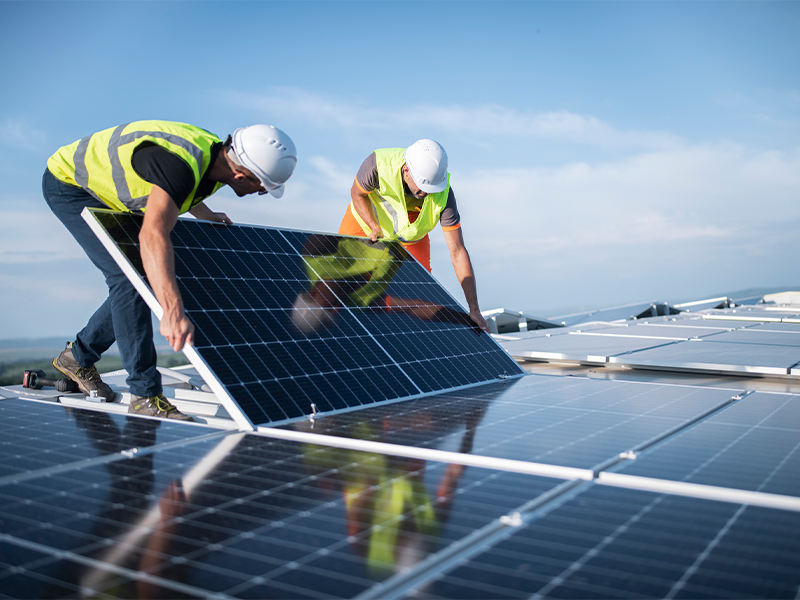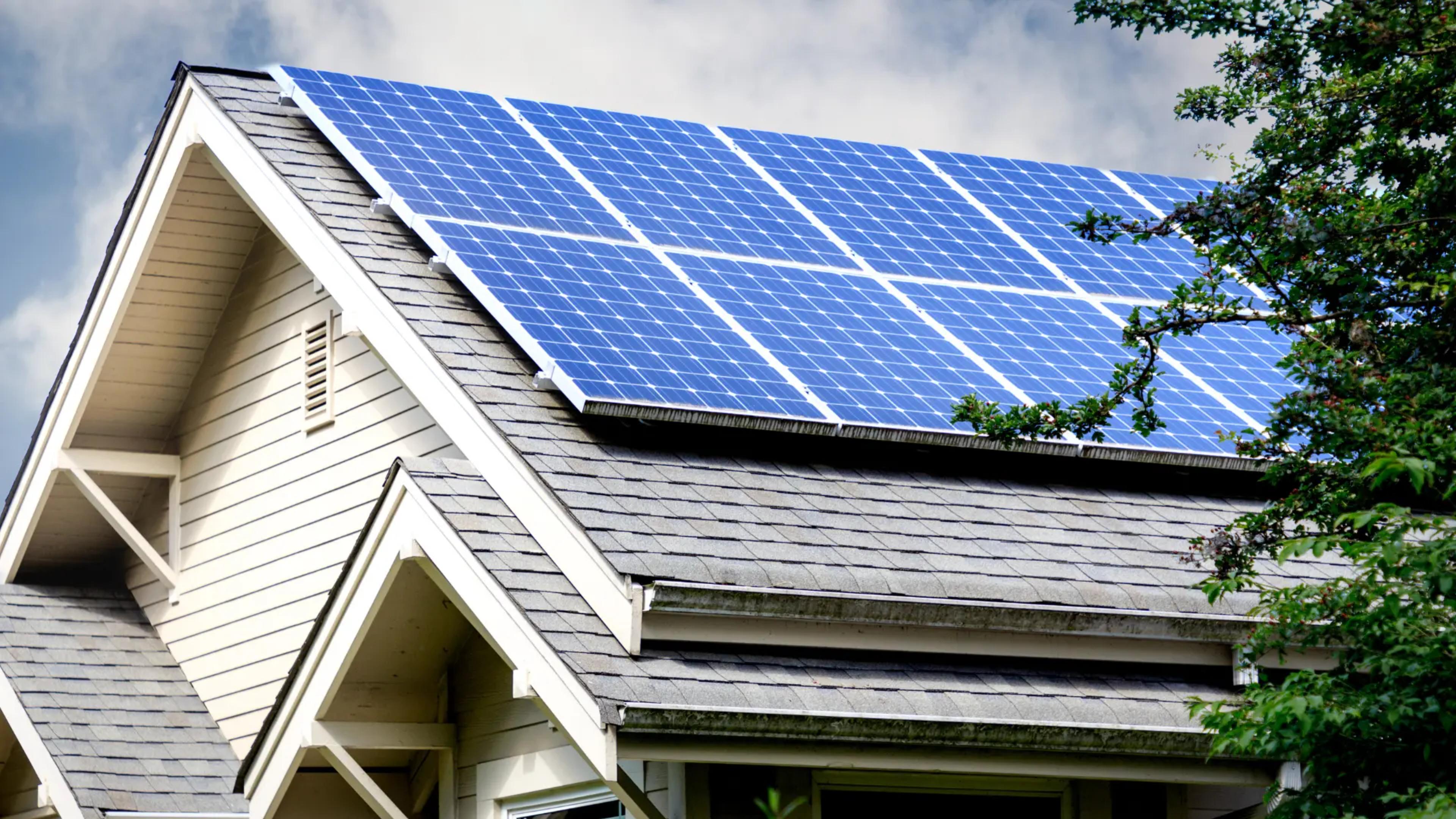Simply Solar Illinois: Complete Solar Solutions for Sustainable Living
Simply Solar Illinois: Complete Solar Solutions for Sustainable Living
Blog Article
How Solar Power Can Aid You Conserve Cash and Decrease Your Carbon Impact
The assimilation of solar power into your energy portfolio presents a compelling opportunity for both financial savings and ecological stewardship. As numerous federal government incentives end up being readily available, the concern develops: just how can one properly browse the preliminary investments and ongoing benefits of solar modern technology to maximize both economic and ecological gains?
Recognizing Solar Power Financial Savings
While the shift to solar power usually entails a first investment, recognizing solar energy savings is important for homeowners and businesses alike. Solar energy systems can substantially reduce electrical power bills by using the sun's power, converting into considerable lasting financial advantages. By generating their very own electricity, users lessen reliance on grid power, which undergoes varying costs. These cost savings can gather with time, typically bring about a quick return on financial investment.
In addition, solar energy systems might receive numerous monetary rewards, consisting of tax credit scores and discounts, additionally boosting their cost-effectiveness. The accessibility of web metering allows users to sell excess energy back to the grid, producing an added income stream. These factors contribute to the general cost savings connected with solar energy.

Along with route financial cost savings, solar energy offers the added benefit of raising building worth. Homes geared up with photovoltaic panels are frequently more appealing to buyers, as they guarantee reduced energy prices - Simply Solar Illinois. Recognizing these aspects is vital for anyone considering solar energy, as it highlights not simply the possible economic gains, but likewise the broader environmental and financial benefits of embracing renewable energy solutions
First Costs vs. Long-Term Perks
When assessing solar energy, it is very important to evaluate the initial costs against the lasting advantages. The upfront investment for photovoltaic panels, installment, and related devices can be substantial, frequently ranging from $15,000 to $30,000, depending upon the system size and home power demands. This initial expenditure may discourage some house owners; however, it is essential to take into consideration the prospective savings gradually.
Once set up, solar energy systems can substantially decrease and even get rid of monthly power costs, bring about significant lasting economic benefits. Researches suggest that house owners can conserve anywhere from $10,000 to $30,000 over the life expectancy of their solar system, typically 25 years. Furthermore, several states supply motivations, tax credit ratings, and rebates that can balance out initial costs, making solar more available.

Decreasing Your Carbon Impact
Reducing your carbon impact is a vital factor to consider in today's eco aware culture, and adopting solar energy is among one of the most effective techniques to accomplish this goal. Solar power is a tidy, renewable energy that substantially decreases reliance on nonrenewable fuel sources, which are major factors to greenhouse gas emissions.

Moreover, the widespread adoption of solar technology urges the advancement of eco-friendly work and supports developments in power storage space and efficiency. The even more individuals and organizations buy solar energy, the higher the cumulative decrease in carbon exhausts, cultivating a cleaner environment for future generations.
Federal Government Incentives and Rebates
Adopting solar power not just benefits the environment but can likewise bring about significant financial cost savings, specifically with the schedule of government motivations and discounts. Numerous government, state, and neighborhood programs are developed to motivate property owners and companies to buy solar power systems, making the shift much more cost effective.
Among one of the most popular incentives is the Federal Financial Investment Tax Obligation Credit Scores (ITC), which allows planetary system proprietors to deduct a considerable percent of the setup expenses from their federal tax obligations. This motivation has been pivotal in lowering the ahead of time expenses related to solar power systems. Furthermore, several states supply their very own tax credit histories, grants, and refunds that can additionally improve savings.
In addition, some city governments supply home tax exemptions for solar installations, making certain that home owners click site do not deal with enhanced property taxes as a result of their eco-friendly power financial investments. Energy firms might also supply rewards, consisting of net metering and feed-in tolls, which enable solar power customers to market excess power back to the grid.
Picking the Right Solar System
Choosing the proper planetary system is vital for taking full advantage of power performance and economic benefits. The choice depends upon numerous factors, including power needs, budget, and offered area. Homeowners need to start by evaluating their electricity usage to determine the system size required for optimal efficiency.
Following, consider the different kinds of solar technologies offered. Simply Solar Illinois. Photovoltaic Or Pv (PV) panels are one of the most common, converting sunlight directly into power, while solar thermal systems concentrate on heating water. Each type has distinct advantages depending upon private needs
Spending plan considerations are additionally paramount. Initial installation expenses can vary significantly, so it is necessary to contrast quotes from several carriers and check out funding alternatives. Government motivations and rebates can even more minimize the financial burden, making planetary systems more obtainable.
Conclusion
In recap, solar power provides a practical solution for attaining considerable cost financial savings while simultaneously minimizing carbon exhausts. The first investment, though considerable, returns substantial lasting economic benefits, with potential cost savings varying from $10,000 to $30,000 over 25 years. Additionally, the environmental benefits of solar power contribute to lasting techniques critical for combating environment modification. Federal government incentives enhance the usefulness of solar modern technology fostering, urging a shift towards a cleaner, a lot more economically reliable power resource.
Report this page